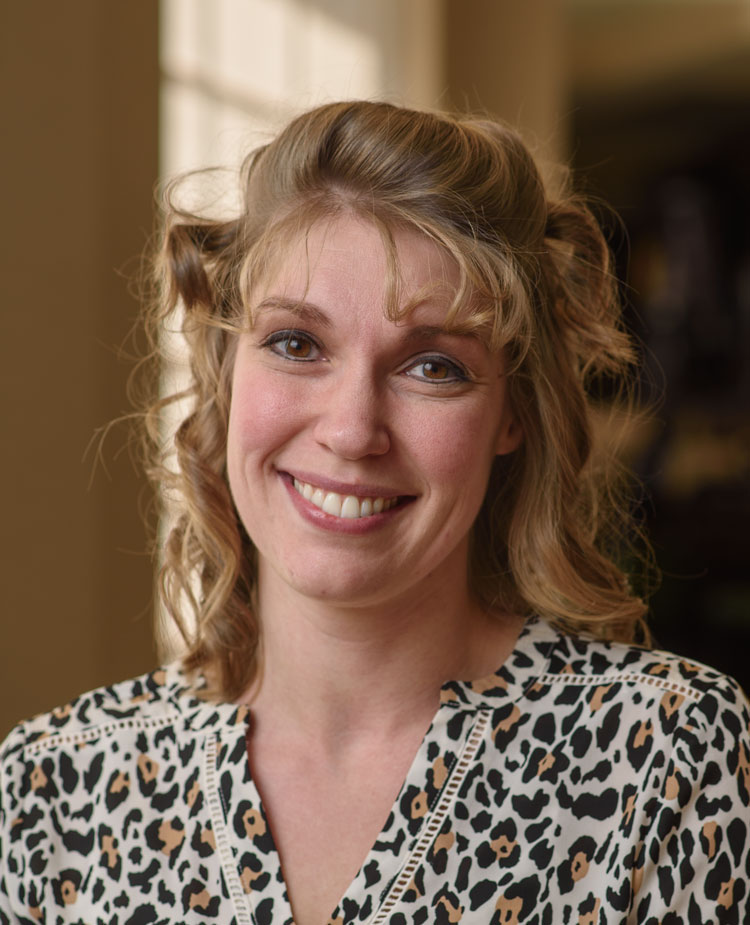
Erin Clark
Erin Clark started her career in hospitals, helping patients with their speech and language skills. She took her experience caring for patients and has used it to inspire her teaching as the clinic director and internship coordinator for the Speech-Language Pathology program.
What is it about the communication disorders, special education, and disability services field that initially drew you in—and ultimately keeps you interested?
My degree is in speech-language pathology. It is a unique profession that prepares individuals to work across the life span and with a variety of different diagnoses.
Before joining the faculty, I worked as a medical speech-language pathologist in a critical access hospital, providing services across the settings of skilled nursing, acute care, subacute rehabilitation, outpatient, home health, and early intervention. This background provided unique experiences I bring to teaching and to my role as the clinic director and internship coordinator for our program.
Your specialty is listed as speech, language, and hearing. What does that entail and why do you enjoy teaching it?
I have two focuses of teaching. The first is in neurology and neurogenic communication and swallowing disorders. I find teaching about the complexities of the human brain and what it is capable of following damage to be fascinating! This focus can be intimidating to undergraduate and graduate students. My goal is to make it accessible and to show students how to connect it with the patients they will be treating. I have the opportunity to make this connection for our graduate-level students during the simulation clinic, which provides students with experiences that simulate assessing and treating swallowing disorders in the acute care environment without risk to patient safety.
Secondly, I teach undergraduate audiology and aural rehabilitation classes and supervise the graduate-level hearing clinic. Audiology is related to speech-language pathology, and there is more collaboration between these two professions than many young clinicians realize. While hearing loss is a low-incidence disability, there is a higher need for speech-language pathologists. More and more children with hearing loss are being mainstreamed due to earlier identification of hearing loss, early management, and advances in technology. We need to ensure that we are preparing the next generation of speech-language pathologists to be knowledgeable and competent to help individuals with hearing loss.
What advice would you give students about how to succeed in college?
Take advantage of every opportunity to become involved. Becoming involved in organizations provides networking opportunities. I also encourage students to make connections with their faculty. Faculty members in IUP’s Speech-Language Pathology program demonstrate an incredible dedication to their students, but students must take responsibility for their learning. Beginning this process from the outset will set students on a positive trajectory for graduate school and will prepare them to be lifelong learners and ethical service providers.